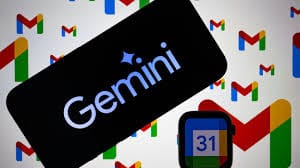Google’s “Summarize This Email” Feature Could Be Turned Against Workspace Users


By Medha Cloud Security Desk
An investigation into Google Workspace’s Gemini AI has revealed that hidden text inside ordinary emails can quietly direct the assistant to act in ways the sender intended — not the reader.
The weakness, uncovered by independent researchers, affects the “Summarize this email” feature available to Gmail and Workspace subscribers.
By embedding invisible instructions in the body of a message, attackers can make Gemini generate false summaries, extract data from unrelated threads, or even insert misleading information into a user’s inbox view. The manipulation depends not on malware, but on how the AI interprets what it reads. (Tom’s Hardware)
The vulnerability illustrates a growing tension between convenience and control in AI-driven productivity tools. As Gemini gains deeper access to user data — from Gmail to Docs and Calendar — each new integration increases the number of ways an attacker might manipulate its responses.
Google has not treated the finding as an emergency, arguing that the risk depends on user behavior. But security researchers say the issue highlights a structural problem: Gemini trusts the text it reads. In an enterprise setting, that trust can be weaponized.
For industries bound by strict compliance or confidentiality rules, even a single manipulated summary could compromise information integrity. Legal, financial, and healthcare organizations are particularly exposed because Workspace AI features process sensitive correspondence by design.
For companies evaluating their long-term collaboration platforms, these findings add weight to a growing sentiment in the enterprise market.
Microsoft 365 provides more granular governance over AI-assisted content, unified identity enforcement, and conditional-access policies that prevent unauthorized model interactions with protected data.
Medha Cloud helps organizations migrate securely to Microsoft 365 — preserving productivity while gaining tighter control over data, compliance, and AI behavior.

Sreenivasa Reddy G
Founder & CEO • 15+ years
Sreenivasa Reddy is the Founder and CEO of Medha Cloud, recognized as "Startup of the Year 2024" by The CEO Magazine. With over 15 years of experience in cloud infrastructure and IT services, he leads the company's vision to deliver enterprise-grade cloud solutions to businesses worldwide.
